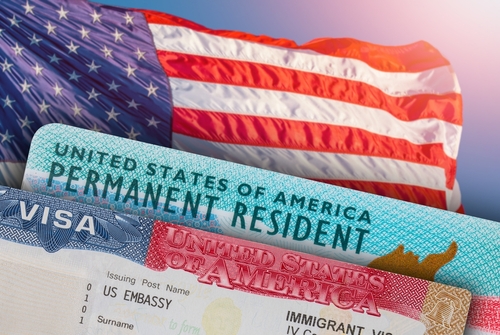If you haven’t heard of a U visa or U nonimmigrant status or have questions about it, you’re in the right place. Our goal is to provide information about a U visa to help you navigate your immigration issues.
What is a U Visa?
A U visa, or U nonimmigrant status, is a temporary visa that allows noncitizen victims of certain crimes to live and work in the U.S. for up to four years. Congress created the U visa in 2000 with the passage of the Victims of Trafficking and Violence Protection Act (including the Battered Immigrant Women’s Protection Act). Each year, 10,000 U visas become available to victims. After the limit is reached, a waiting list is created.
Who’s Eligible for a U Visa?
Victims who have suffered physical or mental abuse and are helpful to law enforcement in the investigation or prosecution of the crime are eligible for a U visa. The crime must have taken place in the U.S. or broken U.S. laws. It helps protect victims and supports law enforcement because it encourages victims to cooperate with law enforcement when they otherwise might be unwilling.
In addition to petitioning for yourself, you may petition for your spouse and/or unmarried children under age 21.
How do I Apply for a U Visa?
To apply for a U visa, you must first obtain a certification from law enforcement stating that you assisted in bringing your perpetrator to justice. The next step is to file Form I-918, with the law enforcement certification attached, with USCIS. Depending on how you entered the U.S., whether you have committed a crime, and certain other factors, you may also need to file a Form I-192 waiver request. There is no filing fee for the Form I-918. The Form I-192 waiver has a filing fee. However, that fee may be waived based on indigency.
You may be eligible for work authorization and protection from deportation while your U visa application is under consideration.
Can I Travel Internationally with a U Visa?
If you leave the U.S. as a U visa holder, you may not be allowed to re-enter the U.S. unless you obtain advance parole. Advance parole is a travel document that allows certain noncitizens to re-enter the U.S. after traveling abroad. Your request for advance parole must be approved by the U.S. Citizenship and Immigration Services (USCIS) before you depart the country.
Can I Get my Green Card?
If you hold a U visa, you can apply to adjust your status to lawful permanent resident or a green card after three years of continuous physical presence in the U.S. Once a green card holder, you may become eligible to apply for citizenship in the U.S.
We know that each immigration case is unique. Please don’t hesitate to contact us with any questions you may have. We’re here to support your immigration needs.

